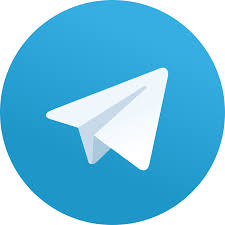Career in library and information science
A career in library and information science can be a fulfilling and rewarding path for individuals who are passionate about books, knowledge, and serving the community. Here are the key steps to consider if you’re interested in pursuing a career in this field:
- Educational Preparation:
- Bachelor’s Degree: While not always mandatory, having a bachelor’s degree in a related field, such as English, history, or a social science, can be beneficial.
- Master’s Degree (MLIS/MLS): Most professional librarian positions require a Master’s degree in Library and Information Science (MLIS or MLS). This graduate-level program typically covers topics like library management, cataloging, reference services, information technology, and research methods. Consider applying to accredited MLIS/MLS programs.
- Gain Practical Experience:
- Internships and Part-Time Jobs: Seek internships or part-time positions in libraries during your studies. This hands-on experience will help you understand the daily operations of libraries and build practical skills.
- Volunteer: Volunteering at a local library can also be a valuable way to gain experience and network within the field.
- Specialize: Library science offers various specializations, such as academic libraries, public libraries, school libraries, archives, digital libraries, and more. Consider your interests and strengths to choose a specialization that aligns with your career goals.
- Networking:
- Join Professional Associations: Join library-related professional organizations like the American Library Association (ALA), Special Libraries Association (SLA), or others relevant to your area of interest. Attend conferences and network with professionals in the field.
- Online Presence: Create an online presence through LinkedIn and other social media platforms to connect with professionals and stay updated on industry trends.
- Certifications: Depending on your career path, consider pursuing relevant certifications, such as Certified Public Librarian (CPL), Certified Academic Library Administrator (CALA), or Digital Archives Specialist (DAS).
- Job Search:
- Apply for Positions: Start applying for library positions in your chosen specialization. Entry-level roles may include assistant librarian, library technician, or library aide.
- Resumes and Cover Letters: Tailor your resumes and cover letters to highlight your relevant skills, experience, and enthusiasm for the library field.
- Continuing Education: Stay up-to-date with new technologies and trends in library and information science through workshops, conferences, and online courses.
- Advancement: As you gain experience, consider seeking higher-level positions such as head librarian, library director, or specialized roles within your chosen field.
- Professional Development: Participate in professional development activities and pursue opportunities for leadership roles within library associations and organizations.
- Lifelong Learning: Embrace a commitment to lifelong learning and adapt to the changing needs of library users and the evolving information landscape.
A career in library and information science can provide you with the chance to make a meaningful impact on your community by facilitating access to information and knowledge. It’s a field that values a passion for learning and the ability to assist others in their quest for information and personal growth.
Here are some of the common job roles and career paths in this field:
- Librarian:
- Academic Librarian: Work in universities, colleges, and research institutions to manage library resources, assist students and faculty, and promote information literacy.
- Public Librarian: Serves the general public in community libraries, helping patrons find resources, organizing events, and providing access to educational materials.
- Special Librarian: Work in specialized settings such as corporate libraries, law libraries, medical libraries, and government libraries to manage industry-specific information resources.
- Archivist:
- Archivist: Preserve and manage historical records, manuscripts, and other valuable materials in archives, historical societies, and museums.
- Information Manager:
- Information Manager: Oversee the organization’s information assets, including databases, digital content, and records, to ensure effective information retrieval and management.
- Knowledge Manager:
- Knowledge Manager: Focus on capturing, organizing, and sharing organizational knowledge to improve decision-making and efficiency within businesses and institutions.
- Data Manager:
- Data Manager: Handle the organization and maintenance of data repositories, including digital databases, ensuring data integrity and accessibility.
- Digital Asset Manager:
- Digital Asset Manager: Manage digital media assets, such as images, videos, and audio files, for organizations and institutions with large multimedia collections.
- Research Analyst:
- Research Analyst: Conduct research and gather information for academic, market research, or business purposes, often in corporate or academic settings.
- Metadata Specialist:
- Metadata Specialist: Create and manage metadata, which is essential for effective organization and retrieval of digital and physical resources in libraries, archives, and digital libraries.
- Records Manager:
- Records Manager: Administer records and information management programs to ensure that organizations maintain accurate and compliant records.
- Library Consultant:
- Library Consultant: Offer consulting services to libraries, helping them with collection development, technology implementation, and strategic planning.
- Teaching and Training:
- Library and Information Science Educator: Teach library science courses at universities and colleges to prepare future librarians and information professionals.
- Information Technology Specialist:
- Information Technology (IT) Librarian: Combine library science expertise with IT skills to manage digital resources, online catalogs, and library systems.
- Content Manager:
- Content Manager: Oversee the creation and management of digital content, including websites, blogs, and online publications, for organizations and institutions.
- Library Automation Specialist:
- Library Automation Specialist: Focus on implementing and maintaining library automation systems and technologies for efficient library operations.
- Library Researcher:
- Library Researcher: Engage in research related to library and information science, contributing to the development of the field.
Career opportunities in library and information science in India are diverse, and they can span across various sectors, including education, government, corporate, healthcare, and more. The field continues to evolve with advancements in technology, making it an exciting and dynamic career choice for those interested in managing and facilitating access to information.
Here are some frequently asked questions (FAQs) regarding a career in library science:
1. What is library science, and what do library professionals do?
- Library science is the study of organizing, managing, and providing access to information resources in libraries and information centers. Library professionals, such as librarians and information specialists, help users find and use information, curate collections, manage library operations, and promote literacy.
2. What are the educational requirements for a career in library science?
- Educational requirements can vary, but a bachelor’s degree is often the minimum for entry-level positions. Many library professionals pursue a Master of Library and Information Science (MLIS) or a related master’s degree for advanced roles. Specializations and certifications are also available.
3. What types of libraries do library professionals work in?
- Library professionals can work in various types of libraries, including public libraries, academic libraries, school libraries, special libraries (e.g., corporate, medical, law), government libraries, and archives.
4. What are the key skills and qualities needed for a successful career in library science?
- Key skills and qualities include strong communication and interpersonal skills, organization, attention to detail, information technology proficiency, adaptability, and a passion for helping others access and use information.
5. What job roles are available in library science?
- Library science offers diverse job roles, including librarian, archivist, information specialist, cataloger, digital asset manager, knowledge manager, and more. Roles can vary based on the type of library and specialization.
6. How does technology impact library science careers?
- Technology plays a significant role in modern libraries, influencing how information is stored, accessed, and managed. Library professionals need to stay updated on digital tools, databases, and information systems.
7. Is a career in library science financially rewarding?
- Salary levels in library science can vary based on factors such as location, type of library, and experience. While some positions offer competitive salaries, others may be more modest. However, many find the career personally rewarding.
8. How can I advance my career in library science?
- Advancing in library science often involves gaining experience, pursuing advanced degrees or certifications, specializing in a specific area, and staying informed about industry trends.
9. Are there opportunities for remote work in library science?
- Yes, remote work opportunities have become more common, especially in roles related to digital libraries, information management, and online resource access.
10. What are some emerging trends in library science careers? – Emerging trends include the use of data analytics to enhance library services, digital preservation of cultural heritage, and the integration of artificial intelligence and machine learning into information retrieval.
Remember that specific details and opportunities in library science can vary by location and institution. It’s advisable to research and network within the field to explore the most suitable career path for your interests and goals.
Career in library and information science
Important Links
You can find here all the important links to apply for Recruitment 2023. We advise the candidates that they must read the official notification before filling out the application form for Vacancy 2023. Career in library and information science Career in library and information science Career in library and information science Career in library and information science
| Particulars | Links |
| Download Official Notification & Application Form Click Below this link Click Here | |
| Official Website | Click Here |
| Home Page Gyanmala Library | Click Here |
| To view all India Librarian Jobs | Click Here |
| To view MCQ Quiz for UGC NET in Library Science Subject | Click Here |
| To view Punjab State Govt. Jobs | Click here |
| To View Koha Library Automation services | Click Here |
| To View Punjab State Private Jobs | Click Here |
| Trending Article in Library Science | Click Here |
 Join Free Whatup Job alert Service GM1 |  Job alert Service GM2 | ||
If Group One is full then Join GM 2 group. If you are Join already in one group please do not enter the 2nd,3rd …. group. both groups as the same. Career in library and information science Career in library and information science | |||
 Join Free Telegram Job Alert Service |  YouTube Channel Subscribe | ||
| Join Telegram and Subscribe YouTube Channel. Your Support is our Strength. The growth of Library Science is our Mission. | |||
 Facebook Page |  Instagram Page Follow | ||
/h2>